#african author
Text
I'm on Ream!
I'm on Ream! It seems to be a very new platform, and I am not sure about it yet, but hell, I'll try anything once!
I have three membership tiers listed, between $3 and $7! I'm not sure how much traction I'll get, but anyway, if you like queer romance with plus-size, POC main characters, why not give me a try?
#african author#fated to the alpha and the angel#books#werewolves#smutwriter#action#amwriting#fantasy#palace of souls#witches#ream#reamstories
4 notes
·
View notes
Text
This woman is an international treasure.
youtube
I can't get over how calmly, in detail, and obvious arguments she exposes the shitfuckery of colonizers (to their descendants' face), while never falling into the insult trap.
#chimamanda ngozi adichie#black author#women author#poc author#African author#speech#humboldt forum#German museum#Africa#war crimes#Youtube
6 notes
·
View notes
Text
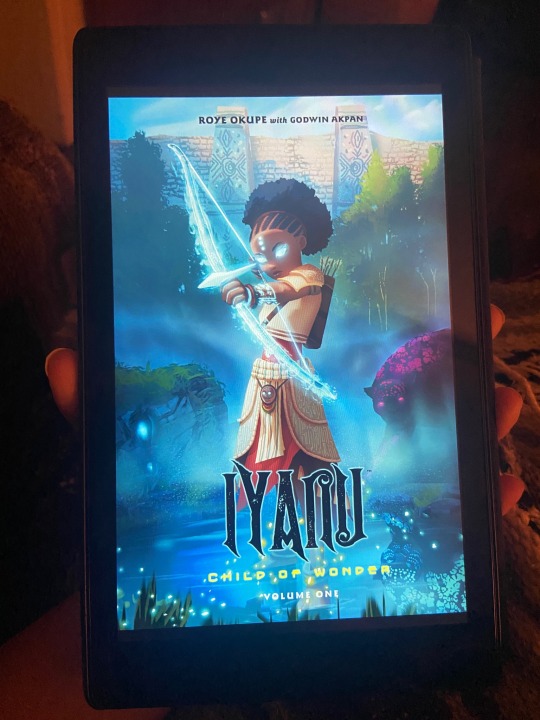
Iyanu: Child of Wonder Review
I discovered this graphic novel on the Libby App and was immediately taken away by the cover. One of my goals this year in reading, is to consume more comics and graphic novels. I was not disappointed with Iyanu Child of Wonder!
This comic book series starts with the introduction of Iyanu. A young girl living on the outskirts of a city named Elu. This city is protected by walls to keep the Corrupted out. A darkness that consumes animals and makes them violent towards humans. The Corrputed are spreading and the society within the walls of Elu are crumbling. Something must change and it seems like Iyanu is the answer. But, Iyanu is no ordinary girl. She kept away for a specific reason. No one must know of her special abilities. These abilities that legends says, comes from the Ancient Ones. If she is to be discovered, it could change the state of things.
5/5 Stars
I really enjoyed this comic series! I love finding comics that are different from our normal superhero ones. It's refreshing to change it up a bit. Iyanu was a great start for me to get back into comics again! Firstly, the vibrant colors reeled me in. The colors made me feel like I stepped into this world. I learned a lot interesting facts and notes about Yoruba culture and traditions. The author takes the time to explain the culture and share details about Yoruba traditions, and which parts of Africa they originated from. It was fascinating cause I knew nothing about Yoruba culture. My only takeaway was that the drawing did fall a little flat for me. But, it wasn't anything specific that took me away from the story. I really got invested towards the end. I couldn't put it down and was eager to know more once I finished. I think this a fun series, especially a series that you can introduce to your kids to. It's vivid, imaginative, compelling and fun! I'm looking forward to reading vol. 2!
What's everyone reading this month? Let me know! I curious to know what you like and I also love adding books to my list. It's never ending. Doesn't anyone have this problem or is it just me? Lol!
XOXO
Sincerely,
Veronica
#sincerelyveronica#iyanuchildofwonder#iyanu#graphic novel#comics#comic book art#kindle#bibliophile#book blog#book review#bookworm#bookblr#booknerd#african author#african culture#black authors
6 notes
·
View notes
Text
Devil's Peak: Book Review
About The BookA crime fiction novel, Devil���s Peak, is about a drunkard of a cop who just got handed over a massive case – will he not mess up? A father who just lost his son and is out for revenge – vigilante or murderer? A prostitute who gets messed up with a drug cartel – will she live to tell the story? In the end, all these stories turn out to be intertwined.
Writing styleThe book is told…

View On WordPress
1 note
·
View note
Text
0 notes
Text
Hoodoo, Rootwork and Conjure sources by Black Authors
Because you should only ever be learning your ancestral ways from kinfolk. Here's a compilation of some books, videos and podcast episodes I recommend reading and listening to, on customs, traditions, folk tales, songs, spirits and history. As always, use your own critical thinking and spiritual discernment when approaching these sources as with any others.
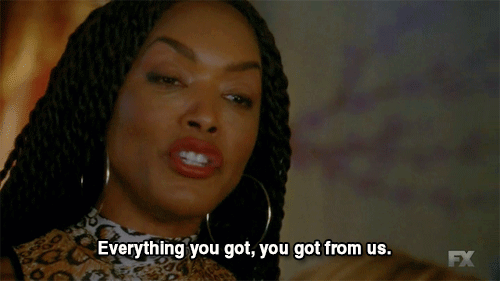
Hoodoo in America by Zora Neale Hurston (1931)
Mules and Men by Zora Neale Hurston (1936)
Tell my horse by Zora Neale Hurston (1938)
Let Nobody Turn Us Around: An African American Anthology by Manning Marable and Leith Mullings, editors (2003)
Black Magic: Religion and the African American Conjuring Tradition by Yvonne P. Chireau (2006)
African American Folk Healing by Stephanie Mitchem (2007)
Hoodoo Medicine: Gullah Herbal Remedies by Faith Mitchell (2011)
Mojo Workin': The Old African American Hoodoo System by Katrina Hazzard-Donald (2012)
Rootwork: Using the Folk Magick of Black America for Love, Money and Success by Tayannah Lee McQuillar (2012)
Talking to the Dead: Religion, Music, and Lived Memory among Gullah/Geechee Women by LeRhonda S. Manigault-Bryant (2014)
Working the Roots: Over 400 Years Of Traditional African American Healing by Michele Elizabeth Lee (2017)
Barracoon: The Story of the Last "Black Cargo" by Zora Neale Hurston (2018)
Jambalaya: The Natural Woman's Book of Personal Charms and Practical Rituals by Luisa Teish (2021)
African American Herbalism: A Practical Guide to Healing Plants and Folk Traditions by Lucretia VanDyke (2022)
youtube
youtube
youtube
youtube
These are just some suggestions but there's many many more!! This is by no means a complete list.
I recommend to avoid authors who downplay the importance of black history or straight out deny how blackness is central to hoodoo. The magic, power and ashé is in the culture and bloodline. You can't separate it from the people. I also recommend avoiding or at the very least taking with a huge grain of salt authors with ties to known appropriators and marketeers, and anyone who propagates revisionist history or rather denies historical facts and spreads harmful conspiracy theories. Sadly, that includes some black authors, particularly those who learnt from, and even praise, white appropriators undermining hoodoo and other african and african diasporic traditions. Be careful who you get your information from. Keeping things traditional means honoring real history and truth.
Let me also give you a last but very important reminder: the best teachings you'll ever get are going to come from the mouths of your own blood. Not a book or anything on the internet. They may choose to put certain people and things in your path to help you or point you in the right direction, but each lineage is different and you have to honor your own. Talk to your family members, to the Elders in your community, learn your genealogy, divine before moving forwards, talk to your dead, acknowledge your people and they'll acknowledge you and guide you to where you need to be.
May this be of service and may your ancestors and spirits bless you and yours 🕯️💀
#hoodoo#conjure#rootwork#black hoodoo authors#Youtube#hoodoo books#african american conjure#african american history#black history#black folklore#african american folklore#black magic#african american magic#witches of color#ATRs#Spotify
1K notes
·
View notes
Text
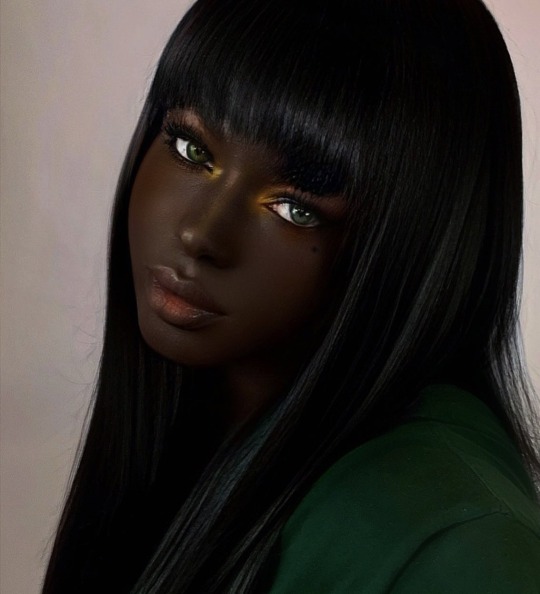

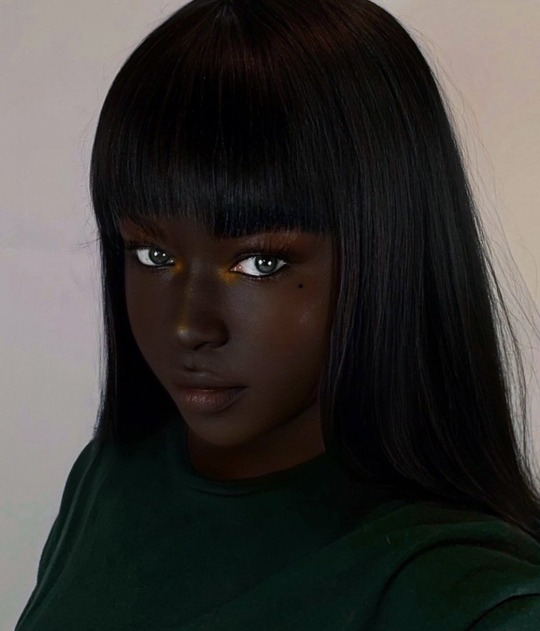


Tomie Cosplay
My Ig: Yaehonia
#darkskin aesthetic#beautiful#darkskingirls#melanin#black female writers#darkskin authors#african girl#blackout#discover#author#togolese#gofundme#smallbuisnessowner#tiktok#africangirlskillingit#black woman power#blackgirls#cosplay#darkskin girl#black cosplayer#tomie cosplay#tomiejunjiito
1K notes
·
View notes
Text

Zora Neile Hurston (1891-1960)
Zora Neale Hurston was an American author, anthropologist, and filmmaker. She portrayed racial struggles in the early-1900s American South and published research on hoodoo. The most popular of her four novels is Their Eyes Were Watching God, published in 1937. ~ Wikipedia
#zora neale hurston#american authors#discrimination#quotation#american filmmakers#african american history
167 notes
·
View notes
Text
I was the only Negro passenger on the plane, and I followed everybody else going into the Dobbs House to get lunch. When I got there one of the waiters ushered me back and I thought they were giving me a very nice comfortable seat with everybody else and I discovered they were leading me to a compartment in the back. And this compartment was around you, you were completely closed in, cut off from everybody else, so I immediately said that I couldn’t afford to eat there. I went on back and took a seat out in the main dining room with everybody else and I waited there, and nobody served me. I waited a long time, everybody else was being served. So finally I asked for the manager and he came out and started talking, and I told him the situation and he talked in very sympathetic terms. And I never will forget what he said to me.
He said, “Now Reverend, this is the law; this is the state law and the city ordinance and we have to do it. We can’t serve you out here but now everything is the same. Everything is equal back there; you will get the same food; you will be served out of the same dishes and everything else; you will get the same service as everybody out here.”
And I looked at him and started wondering if he really believed that. And I started talking with him. I said, “I don’t see how I can get the same service. Number one, I confront aesthetic inequality. I can’t see all these beautiful pictures that you have around the walls here. We don’t have them back there. But not only that, I just don’t like sitting back there and it does something to me. It makes me almost angry. I know that I shouldn’t get angry. I know that I shouldn’t become bitter, but when you put me back there something happens to my soul, so that I confront inequality in the sense that I have a greater potential for the accumulation of bitterness because you put me back there. And then not only that, I met a young man from Mobile who was my seat mate, a white fellow from Mobile, Alabama, and we were discussing some very interesting things. And when we got in the dining room, if we followed what you’re saying, we would have to be separated. And this means that I can’t communicate with this young man. I am completely cut off from communication. So I confront inequality on three levels: I confront aesthetic inequality; I confront inequality in the sense of a greater potential for the accumulation of bitterness; and I confront inequality in the sense that I can’t communicate with the person who was my seat mate.”
And I came to see what the Supreme Court meant when they came out saying that separate facilities are inherently unequal. There is no such thing as separate but equal.
The Autobiography of Martin Luther King Jr.
#MLK#Martin Luther King Jr#Clayborne Carson#The Autobiography of Martin Luther King Jr#1960s#civil rights#civil rights movement#black history#black history month#black lives matter#black history matters#black authors#history#blm#black voices#bipoc#african american#peaceful protests#nonviolent resistance#atypicalreads#noncooperation#passive resistance
529 notes
·
View notes
Text

All racism has ever done is slow down the creation of new beauty💜
🇺🇸👩🏾🦱📖
#history#phillis wheatley#poet#united states#boston#african american history#book#black girl magic#historical women#american revolution#female author#womens history#black writers#usa#women empowerment#african american women#girl power#england#black history#educated black women#black empowerment#historical figures#american colonies#american history#education#nickys facts
90 notes
·
View notes
Text
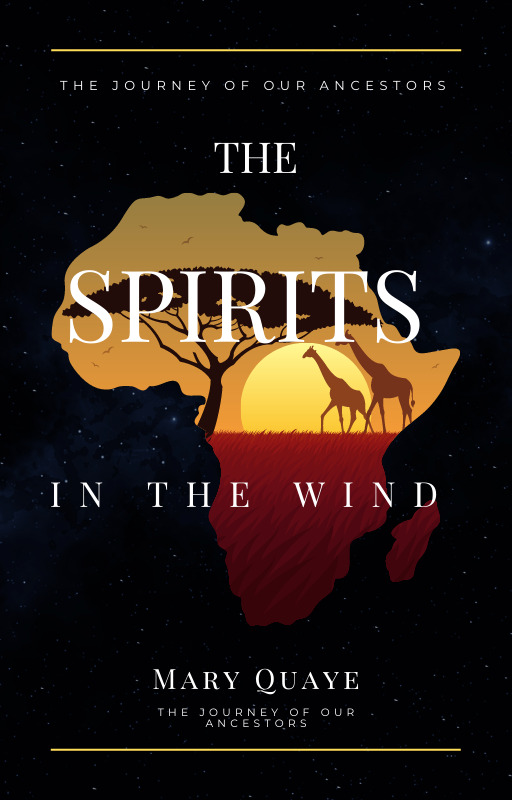
Before the week is over my sister in Ghana wrote a book that will be available to download on Tumblr for free. She is hoping that we can send her a small tip, nothing over $5.00 to aid her in the future writing for her next book by visiting all of our indigenous ancestors around the globe. She is telling their stories. She is a very proud lady who doesn't believe in something for nothing, so this is why she will be giving her soon to be the newly released E-book.
This book covers everything from migration out of Africa, to how Christianity was used to colonize the world. She even explained how race was invented from the unscientific methods to make slavery a Black People problem rather than indentured servitude that was a poor people problem.
Most people don't know that Europeans were the first slaves from England. This is a powerful book that you would want to read to your entire family. In her book you will see how to send your monetary support to her directly. Thanks all of you in advance. Please reblog this for her.

#black history#black love#black africans#black positivity#science#evolution#science side of tumblr#african atheism#atheism#Mary Quaye#Ghana#Author#writer#publishing#novelist
72 notes
·
View notes
Text

Alternative cover to Palace of Souls Book 1! Soon this book will be available on most, if not all, web novel sites. Details to follow!
#Fated to the Alpha and the Angel#Palace of Souls#books#werewolves#smutwriter#african author#fated to the alpha and the angel#authors
3 notes
·
View notes
Text

I knew that the Catholic Church via the Pope had authorized slavery in the 1400s, but I didn’t know that they had authorized the eradication, subjugation, etc, of African people. Somehow I never connected the two.

“We grant you [Kings of Spain and Portugal] by these present documents, with our Apostolic Authority, full and free permission to invade, search out, capture, and subjugate the Saracens and pagans and any other unbelievers and enemies of Christ wherever they may be, as well as their kingdoms, duchies, counties, principalities, and other property […] and to reduce their persons into perpetual servitude.”
These clearly refers to the lands along the coast of West Africa. By these decree, Pope Nicholas V conceded to the King of Portugal Afonso V and Prince Henry and all their successors, all their conquests of Africa, and reduction to perpetual servitude of all people deemed non-believers and enemies of Christ, and all their properties.
A significant subsequent concession given by Nicholas V in a brief issued to King Alfonso in 1454 extended the rights granted to existing territories to all those that might be taken in the future. Together with a second reference to some who have already been enslaved, this has been used to suggest that Nicholas sanctioned the purchase of black slaves from “the infidel”: “… many Guineamen and other negroes, taken by force, and some by barter of unprohibited articles, or by other lawful contract of purchase, have been … converted to the Catholic faith, and it is hoped, by the help of divine mercy, that if such progress be continued with them, either those peoples will be converted to the faith or at least the souls of many of them will be gained for Christ.”
This bull is currently conserved at the Institute of the National Archives of Torre do Tomba in Lisboa, Portugal, under the reference PT/TT/BUL/0007/29 and is fully translated to French in the book “le Péché du pape contre l’Afrique” (The Sin of the Pope against Africa) (éd. Al qalam, Paris, 2002) de Assani Fassassi, P. 10 – 21.
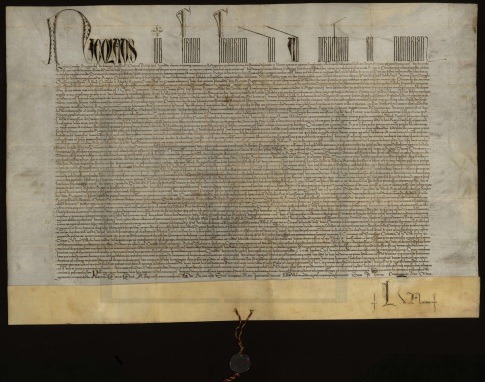
#catholics and slavery#pope nicholas v#dum diversas#Dum Diversas or The Vatican’s Authorization of Slavery#who started slavery of Africans#Enslaved Africans#catholic church is paying Reparations#Reparations
52 notes
·
View notes
Text
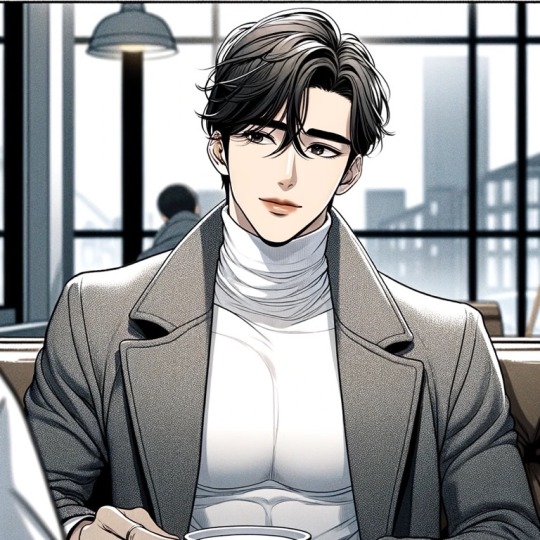

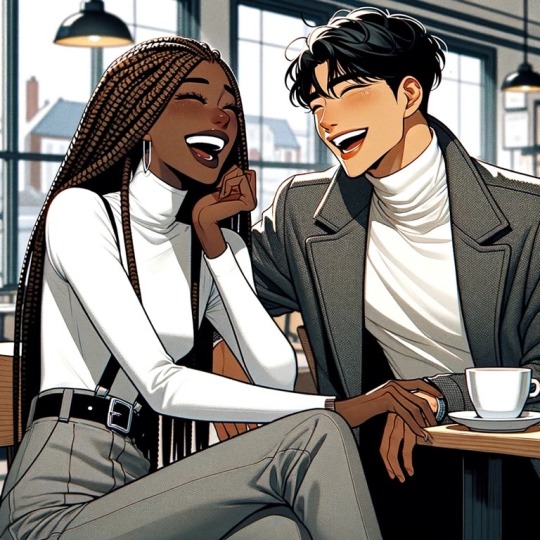

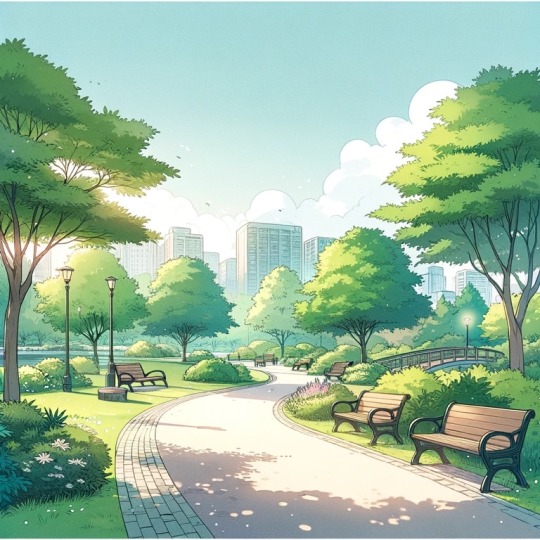
#beautiful#darkskin aesthetic#black female writers#darkskin authors#darkskingirls#melanin#discover#african girl#blackout
26 notes
·
View notes
Text
Today's feminist movement has a glaring blind spot, and paradoxically, it is women. Mainstream feminists rarely talk about meeting basic needs as a feminist issue, argues Mikki Kendall, but food insecurity, access to quality education, safe neighborhoods, a living wage, and medical care are all feminist issues. All too often, however, the focus is not on basic survival for the many, but on increasing privilege for the few. That feminists refuse to prioritize these issues has only exacerbated the age-old problem of both internecine discord and women who rebuff at carrying the title. Moreover, prominent white feminists broadly suffer from their own myopia with regard to how things like race, class, sexual orientation, and ability intersect with gender. How can we stand in solidarity as a movement, Kendall asks, when there is the distinct likelihood that some women are oppressing others?

#book: hood feminism#author: mikki kendall#genre: feminism#genre: non fiction#genre: african american literature#year: 2020s
15 notes
·
View notes